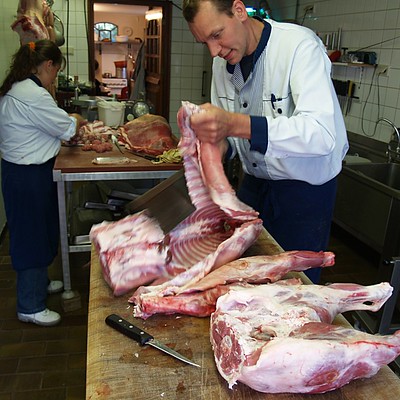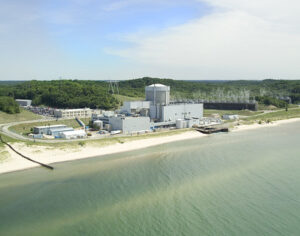Here’s another argument in favor of developing an agricultural program at WCC. Last week, MLive reported on a local couple’s plans to open a USDA-inspected slaughterhouse in Washtenaw County. If realized, this facility may increase animal farming here.
According to the most recent USDA Census for Farming, there has been a slight shift in Washtenaw County farm production from plant-based crops to animal production. This might reflect increased demand by restaurants and upscale grocers for locally produced meat. It may also reflect the fact that animal farming may be more financially rewarding than cultivated crop production.
For more than two decades, I have purchased meat directly from farmers or through slaughterhouses, rather than purchasing it from the grocery store. The per-pound cost of buying meat this way is much lower, and the quality and variety of cuts are much better. Additionally, buyers can get custom cuts of meat by paying an additional processing charge.
The catch is that the farmers have had to locate processing facilities in mid-Michigan, Ohio, and even Indiana. Then, they need to transport the animals there for processing and return for the processed animals. There’s no doubt in my mind that a USDA-inspected slaughterhouse would quickly draw farmed animals from not only Washtenaw County but from Wayne, Monroe, Lenawee, and Jackson counties as well.
A USDA-inspected slaughterhouse represents a multi-million dollar investment in agriculture in Washtenaw County. Having a local, USDA poultry processor would also be a huge plus. (There are state-inspected facilities, but they don’t meet the same standards as USDA-inspected facilities do.)
One of the biggest differences is that a USDA inspected facility must take in all animals alive and allow inspectors to observe both the live animals and the slaughter procedures. This helps prevent sick animals from entering the food chain.
Facility could make agriculture more lucrative
This point is important. State-inspected meat processors often take in deer carcasses for processing during hunting season. While the processing of harvested deer is generally safe when performed correctly, the increased incidence of Chronic Wasting Disease and other bovine spongiform encephalopathies in Michigan’s wild deer population could lead to the contamination of farmed meat during processing.
Currently, state-inspected facilities avoid this by processing deer in separate facilities or only after all beef has been processed for the day. A USDA-inspected facility could process venison only if the deer were farm-raised and brought to the slaughterhouse while still alive.
A USDA-inspected facility would provide a big boost to animal farming in Washtenaw County. It’s another sign of growing interest in agriculture in Washtenaw County, and it would help support the small farms here that are at the highest risk of loss.
Photo Credit: Jan Glas, via Flickr
















